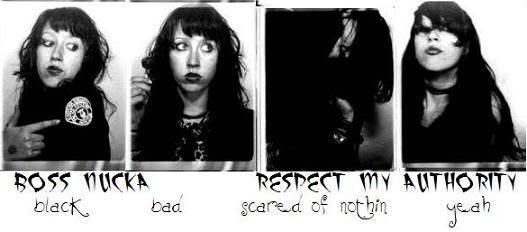Quote:
Originally Posted by urgeok2

as far as the redneck thing ... the UFO sightings/abductions were far more commonly being reported in rual areas .. which makes sense because in an urban setting there would be too many people present to deny your claims.
the arguement would be that aliens would avoid cities - and i think certain folks have taken that ball and ran with it.
i know that not all rural folks are 'rednecks' (and i admit to being one to use that term more liberally than i should - because of personal experience) but from my point of view when you combine 'rural' .. with 'crazy enough to try to convince people you're an abductee' the image of an inbred hillbilly does come to mind.
|
This does make perfect sense.
Excerpt from the biographical page on Carl Sagan...
"Sagan had some interest in UFO reports from at least 1964, when he had several conversations on the subject with Jacques Vallee. Though quite skeptical of any extraordinary answer to the UFO question, Sagan thought scientists should study the phenomenon, at least because there was widespread public interest in UFO reports.
Stuart Appelle notes that Sagan "wrote frequently on what he perceived as the logical and empirical fallacies regarding UFOs and the abduction experience. Sagan rejected an extraterrestrial explanation for the phenomenon but felt there were both empirical and pedagogical benefits for examining UFO reports and that the subject was, therefore, a legitimate topic of study."
In 1966, Sagan was a member of the Ad Hoc Committee to Review the Project Blue Book, the U.S. Air Force's UFO investigation project. The committee concluded Blue Book had been lacking as a scientific study, and recommended a university-based project to give the UFO phenomenon closer scientific scrutiny. The result was the Condon Committee (1966-1968), led by physicist Edward Condon, and their still-controversial final report, formally concluded that there was nothing anomalous about UFO reports.
Ron Westrum writes that "The high point of Sagan's treatment of the UFO question was the AAAS's symposium in 1969. A wide range of educated opinions on the subject were offered by participants, including not only proponents as James McDonald and J. Allen Hynek but also skeptics like astronomers William Hartmann and Donald Menzel. The roster of speakers was balanced, and it is to Sagan's credit that this event was presented in spite of pressure from Edward Condon". With physicist Thornton Page, Sagan edited the lectures and discussions given at the symposium; these were published in 1972 as UFO's: A Scientific Debate. Jerome Clark writes that Sagan's perspective on UFO's irked Condon: "... though a skeptic, [Sagan] was too soft on UFOs for Condon's taste. In 1971, [Condon] considered blackballing Sagan from the prestigious Cosmos Club".
Some of Sagan's many books examine UFOs (as did one episode of
Cosmos) and he recognized a religious undercurrent to the phenomenon. However, Westrum writes that "Sagan spent very little time researching UFOs ... he thought that little evidence existed to show that the UFO phenomenon represented alien spacecraft and that the motivation for interpreting UFO observations as spacecraft was emotional".
Sagan again revealed his views on interstellar travel in his 1980
Cosmos series. He rejected the idea that UFOs are visiting Earth, maintaining that the chances any alien spacecraft would visit the Earth are vanishingly small. In one of his last written works, Sagan again argued there was no evidence that aliens have actually visited the Earth, either in the past or present."






